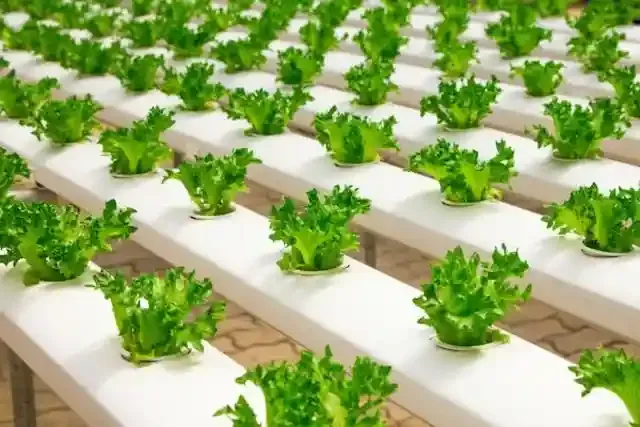What is Hydroponics? Examples, Types, Advantages and Disadvantages
What is Hydroponics?
Hydroponics is a method of growing plants in a water-based nutrient solution, without using soil. The roots of the plants are either suspended in the solution or supported by an inert medium, such as rock wool, perlite, or coconut coir. This method allows for precise control over the nutrients, water, and oxygen that the plants receive, which can lead to faster growth and higher yields.

Examples of Hydroponics
- Lettuce: One of the most common crops grown hydroponically, due to its fast growth and high demand.
- Tomatoes: Can be successfully grown hydroponically, producing high yields of flavorful fruit.
- Herbs: Popular choices for hydroponics include basil, mint, and cilantro, as they thrive in controlled environments.
- Strawberries: Well-suited for hydroponics due to their shallow root systems and high market value.
- Cannabis: Grown hydroponically for both medicinal and recreational purposes in many regions.
Types of Hydroponics
There are several different types of hydroponic systems, each with its own advantages and disadvantages. Some of the most common types include:
- Deep Water Culture (DWC): Plants' roots are suspended in a continuously aerated nutrient solution.
- Nutrient Film Technique (NFT): A thin film of nutrient solution flows continuously over the roots of the plants.
- Ebb and Flow (Flood and Drain): The growing medium is flooded with nutrient solution periodically, and then allowed to drain.
- Aeroponics: Plant roots are misted with a nutrient solution in an enclosed environment.
Advantages of Hydroponics
- Increased yields: Plants can grow faster and produce more fruit or vegetables compared to traditional soil-based methods.
- Water conservation: Hydroponic systems can use up to 90% less water than traditional agriculture.
- Reduced need for pesticides and herbicides: The controlled environment of hydroponics makes it less susceptible to pests and diseases.
- Year-round production: Hydroponic systems can be used to grow crops indoors regardless of the season or climate.
- More efficient use of space: Hydroponic systems can be stacked vertically, making them ideal for small spaces.
Disadvantages of Hydroponics
- Higher initial investment: Setting up a hydroponic system can be more expensive than traditional gardening methods.
- Requires more technical knowledge: Hydroponics requires careful monitoring of nutrient levels, pH, and other factors.
- Risk of system failure: A power outage or equipment malfunction can damage or kill the plants.
- Limited crop selection: Not all plants are well-suited for hydroponic growing.
- Potential for environmental impact: Improper disposal of nutrient solutions can harm the environment.
Frequently Asked Questions
Is hydroponics organic?
Hydroponically grown plants can be organic if they are grown using organic nutrients and no synthetic pesticides or herbicides are used.
Can I use tap water for hydroponics?
It is not recommended to use tap water for hydroponics, as it may contain chlorine, fluoride, and other minerals that can harm plants. Use filtered or rainwater instead.
How often do I need to add nutrients to my hydroponic system?
The frequency of adding nutrients will depend on the type of system, the plants you are growing, and the stage of growth. It is important to test your nutrient solution regularly and adjust as needed.
Do I need to use grow lights for hydroponics?
If you are growing plants indoors, you will need to provide them with artificial light. LED grow lights are a popular choice for hydroponics.
How can I prevent pests and diseases in my hydroponic system?
Maintain good sanitation practices, such as sterilizing your equipment and monitoring your plants for signs of pests or diseases.
Is hydroponics better than traditional gardening?
There is no one-size-fits-all answer to this question. Both hydroponics and traditional gardening have their own advantages and disadvantages. The best method for you will depend on your individual needs and preferences.
Can I grow anything hydroponically?
While many plants can be successfully grown hydroponically, some are better suited to this method than others. Do your research to determine if the plants you want to grow are good candidates for hydroponics.
Read more



